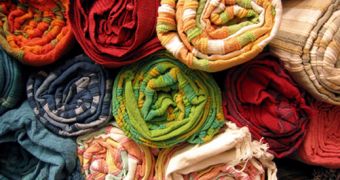A new report made public by UK's Waste and Resources Action Programme (WRAP, for short) argues that, although some people living in this country push for sustainability by making sure some of their textile waste gets recycled, there is still much to be done.
Thus, this organization, which works on the assumption that “'waste' is actually 'stuff with value,'” states that Brits simply throw away roughly a million tonne of textiles on a yearly basis, most of which could be recycled.
As they put it, making sure these discarded clothes, linens and shoes are put to better use would do more than just benefit the environment: it would help boost the national economy.
Marcus Gover (i.e. WRAP's director) made a case of how, “In 2010, we threw out an estimated £238m-worth (roughly €297 million / $383 million) of textiles for waste collection and sent to landfill, yet all of this could have been re-used, recycled or sent for energy recovery.”
He further elaborated on this issue as follows: “If we were to recover just 10% of that household textile waste, we could potentially unlock revenues of around £24m (about €30 million / $38.6 million). If we were to increase this figure to match what has already been achieved in recycling and re-use of other household waste materials, this amount could be even higher.”
According to this report, most of the textile recycling industry in this part of the world revolves around clothes, whereas other items made from similar material are simply forgotten.
However, existing technologies allow mattresses, old carpets and the like to also enter recycling programs, so perhaps the only thing presently keeping them from doing so is the fact that people are not yet informed with respect to this possibility.
“We know that there’s both infrastructure and reprocessing capacity out there, so there’s a challenge here to make sure people are aware, not only of the implications of sending textiles to landfill, but also of the different collection opportunities available for all unwanted textiles - and not just clothes,” argues Marcus Gover.

 14 DAY TRIAL //
14 DAY TRIAL //